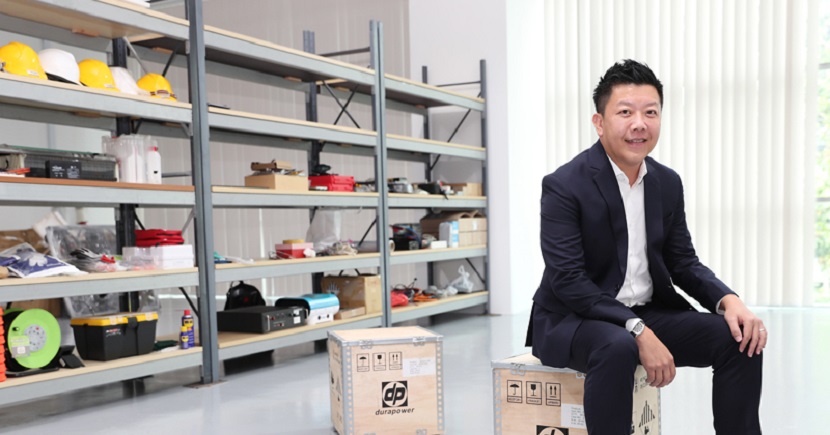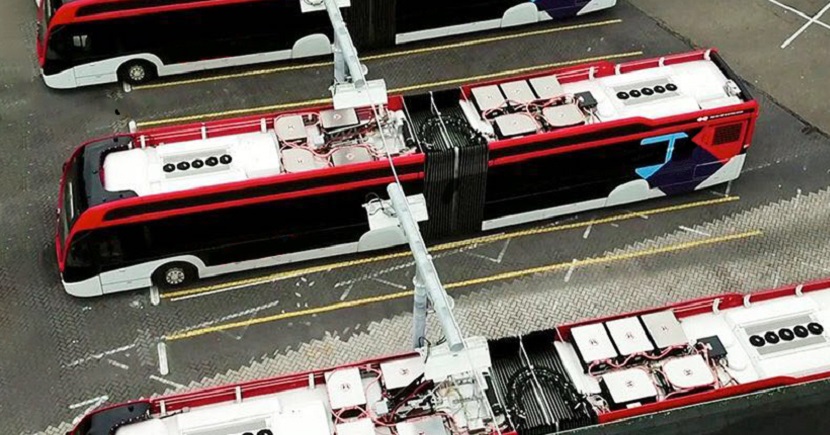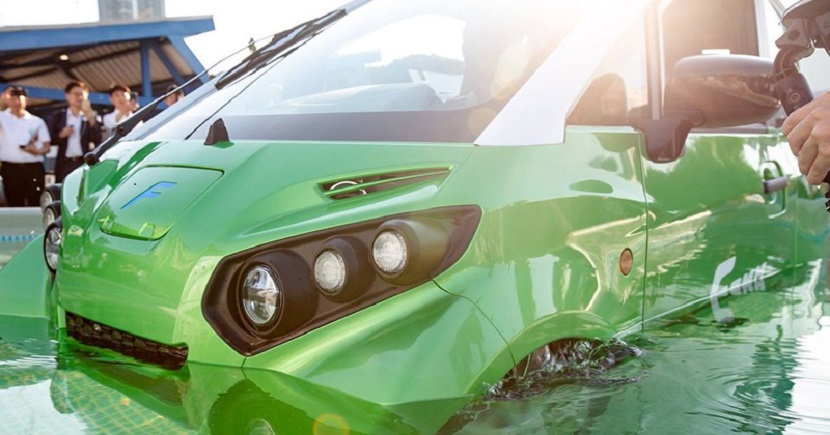First published in The Business Times on 12 February 2020.
Tesla Motors might be the name you think of when you think of electric cars today, but while the Californian electric car maker only began development on the Roadster in 2004, Kelvin Lim was already driving an electric car in 2001.
"There were no commercially produced cars, we converted it ourselves," says Mr Lim with a laugh. "We converted a petrol car to an electric car and a diesel bus to an electric bus. That's where it all started."
But while Mr Lim might have been an ultra-early adopter, the road to widespread adoption of electric cars has been far from smooth. Between high battery costs - resulting in expensive vehicles and thus low adoption rates - and concerns about running out of charge in the middle of a drive, reception to electric vehicles has been lukewarm, till recently.
According to a McKinsey report issued in August last year, electric vehicles (EVs) have a penetration rate of 2.2 per cent of the overall light-vehicle market. That being said, EV sales have grown substantially - more than two million units were sold globally in 2018, an increase of 63 per cent on a year-on-year basis.
The CEO of Durapower Technology Group is very clear-eyed about the challenges faced by the electric vehicle industry. The firm has, after all, been involved in the research, design, manufacturing and system integration of advanced lithium battery technology for automotive and energy storage systems for over a decade.
But what sets the firm apart and makes it a leader in its field, is the way they tackle issues. As Mr Lim puts it, it's all about "disrupting the mindset".

Tackling the tough questions
Ask the average person on the street whether they need their electric vehicle to be fully charged before they embark on their journey and more likely than not, the answer will be an emphatic yes.
But do you, really?
"In the past, electric vehicles were not successful because charging time was too long, prices were too expensive, the range was too short. It was too expensive because in order to hit the long range, you needed to put in a lot of batteries. And because the batteries are so heavy, the vehicle was not carrying people, it was carrying batteries," says Mr Lim.
"Now, let's turn this around and look at this from a different perspective. If we can offer a battery that charges between 10 to 15 minutes instead of four and a half hours, you can change the whole equation."
Indeed, break it down to its components, and the argument for the passenger car use case is surprisingly straightforward. After all, the average passenger car is driven to work, parked for the day, before it is driven home. "Everyday, 30km; 50km at most! Buses operate more than 300km every day, non-stop," says Mr Lim.
In fact, working with buses is more challenging. But Mr Lim argues that their batteries make sense for bus fleet operators. "Imagine telling a bus operator like SMRT that the charging time for their buses is five hours, what this essentially means is that the bus will be parked there for five hours. It's okay if you have 10 buses plying a similar route but if you have only one or two buses, that severely limits your fleet availability," he says.
If the next question on your lips is "Can 15 minutes give you a full charge?" Mr Lim is quick to counter it with a question of his own: "If the batteries can be fast-charged, why do you need a full charge?"
Developing fast-charge batteries is not the only way Durapower has solved problems via out-of-the-box thinking. Batteries have traditionally been large and heavy meaning they had to be stored underneath seats, floor boards of buses, or behind the driver's seat, thus taking up valuable seating space. Durapower's batteries meanwhile are lightweight enough to be placed on the roofs of buses without compromising on the stability of the vehicle.

It is not just about maximising profits for fleet operators. By offering bus designers the option of installing the batteries on the rooftop instead of under the floorboards for instance, the entire length of the bus is fully accessible whether a rider is wheelchair-bound, or has a pram or even shopping cart.
You could say that Mr Lim relishes a good challenge. Durapower first made its mark with electric buses. Having proven that their batteries, which are installed on bus roofs, can withstand snow, rain and sun, Durapower decided to take on the passenger car market about two years ago.
Naturally, they are not simply supplying their batteries to any passenger car. Durapower is now working with Japanese electric vehicle startup FOMM Corp, which was founded by Hideo Tsurumaki, a former Toyota employee. What makes his cars so special is that these electric cars are not just small, they are waterproof and are designed to float.

"This is another myth we busted. A Singapore company that is a battery supplier to a Japanese carmaker," he says with a laugh. "For this project, we were involved in it to make a statement. People always say that electric vehicles become very dangerous when it rains or when it floods. But this car's manufacturer designed a car that can cross a river!"
"I believe that to make things happen, you need to be different. All Singapore companies need to find a differentiating point. We cannot go out there and claim that we are bigger than others - our big companies here are probably a SME in China, or even a SSME," he quips.
Finding a market
Like many other SMEs, Durapower knew that internationalisation was key for growth. But the firm's journey of internationalisation is quite unique. Durapower, then New Resources Technology, was established in 2009. It quickly established operations in China the following year and from 2011, started delivering batteries for hybrid electric vehicles, in particular hybrid electric buses for the Chinese market.
When Mr Lim joined the firm in 2014, he decided the firm needed to look to other countries.
"The Chinese market was very strong and the timing was very hot - many big companies wanted to go there," says Mr Lim. "China at the time had a big push for clean energy so they were encouraging foreign companies to go to China to prove their technologies," says Mr Lim.
While many companies were rushing in to take advantage of the incentives, Mr Lim was wary of operating with the assumption that these incentives would last forever.
"I've put it across to my team that we do business with the assumption that there's no subsidies. You cannot do a business because there is subsidy, that is not sustainable," says Mr Lim. "We create products and we supply to market based on total cost of ownership. There must be a reason why people use and want to buy.
"So the best place to prove ourselves was Europe at the time because Europe had said they are going zero emission. So that's how we chartered our way into Europe, and from there we went to other countries."
The target he set for the firm, then, was that at least 50 per cent of Durapower's revenue has to be "international" - ie come from outside of China. Today, 80 per cent of Durapower's revenue comes from their international operations and 20 per cent of their revenue comes from China.
Naturally, they are also in Singapore.
Last year, Durapower was awarded a major contract worth over S$10 million from PSA Corporation to provide battery storage solutions for the port operator's automatic guided vehicle fleet at its new Tuas Mega Port.
"This is a very significant project for us because the seaport is a critical piece that defines Singapore," says Mr Lim. "Singapore's international standing on seaport efficiencies and operations is among the best in the world, so we are very proud to be part of that."
While Durapower now has a global network of customers in countries including China, Europe, Japan, India and Southeast Asia, Mr Lim notes that Enterprise Singapore played an integral role in their growth.
"One way Enterprise Singapore supported us a lot was on certifications ... As a component manufacturer, we need to be certified. Every time we go to a new market, we have to be accredited to the latest standard. This sometimes becomes a major hurdle, to whether we expand to a market or not."
In 2018 for instance, Enterprise Singapore supported Durapower in implementing ECE R100 testing and certification for their Suzhou plant in alignment with the European Union's product standards. ECE R100 certification is one of the more important requirements to secure regulatory approval for electric vehicles. Batteries that are certified under this standard will be allowed to be integrated into electric vehicles which can be sold and driven in Europe.
Enterprise Singapore has also supported Durapower in obtaining international registration of trademarks and patents.
The firm's research and development tracks their expansion. Constant innovation is a key means of differentiation for Durapower and they are active in their pursuit of working with the best.
Their first R&D centre was in China where they design products for applications. In Singapore, they have set up a R&D lab with the Energy Research Institute@NTU to leverage Nanyang Technological University's battery research. They also have R&D collaborations in Japan and the US.
"In Japan, we work with universities and companies. That has allowed us to create products that can be certified to their standard and supplied to the whole Japanese market ... So we did all these things with purpose, not just because they are good in this research topic, but we see commercial interest also" he explains. "So we get the best of everywhere, bring it all back to Singapore where we create our products to test, certify and patent, then move it to China where we do mass production."
In January last year, Durapower opened another R&D lab in the Netherlands. The Automotive Campus where they are set up is part of Brainport Eindhoven, a leading high-tech industry cluster in the Netherlands.
While Durapower counts VDL Groep as one of its customers in the Netherlands, setting up operations there was a daunting task.
"Other than our customers, we didn't know who else to look for in the Netherlands. And we were a bit fearful for instance, would it be a big commitment for us, how do we set up a company in Europe, would it be expensive or hard to manage the employment of locals there, what are their manpower and trade laws," says Mr Lim.
"Enterprise Singapore connected us to banks, legal services, and consultants who helped us set up the business." The agency even helped them with nitty-gritty things such as visa applications.
When Durapower was exploring the Eastern European market, Enterprise Singapore's regional director even accompanied him on his factory visits.
"Having someone say they are Enterprise Singapore and they are introducing a Singapore company is very different from saying 'hi, I sell batteries'. It doesn't mean that a visit like that will bring business but it makes us appreciate how lucky we are," says Mr Lim.
Extending the flywheel
Mr Lim says he is excited for the company's next phase of growth. Durapower batteries have been in the market for ten years and they are starting to return to the firm, to be slated for reuse or recycling.
"Batteries at the end of service life are, financially speaking, write-off items. They are not good enough to be graded automotive but still good enough for energy storage. So we will take these batteries, redesign and overhaul them into new battery units."
The plan, says Mr Lim, is to bring these overhauled batteries to rural areas within Asean and start building out their stationary market business. This primarily comprises designing energy storage solutions for commercial, industrial and residential buildings, and designing microgrids.
Microgrids are particularly popular in countries undergoing rapid urbanisation.
"In Vietnam, Thailand, Indonesia, there's a big need for this," says Mr Lim. "Indonesia, especially the rural areas, many have no traditional sources of energy supplied to them. They're still leveraging gensets which are not environmentally friendly. More importantly for them, diesel can be stolen. So one of our goals is to bring energy to them. We can do that today, but batteries are expensive. So if we can reuse our batteries, this brings prices down. That closes the loop."
He adds: "This is not a big sector for us now, but it's certainly a very big and growing sector which we see will define a big part of our growth in the next five years."


